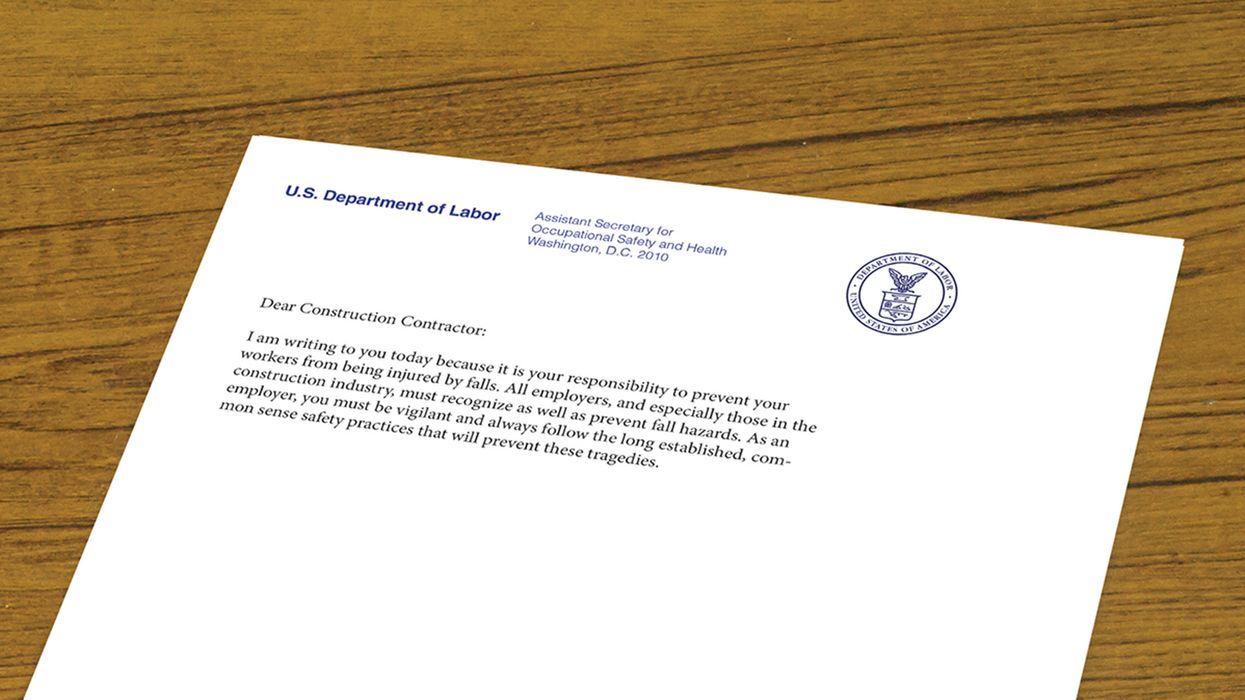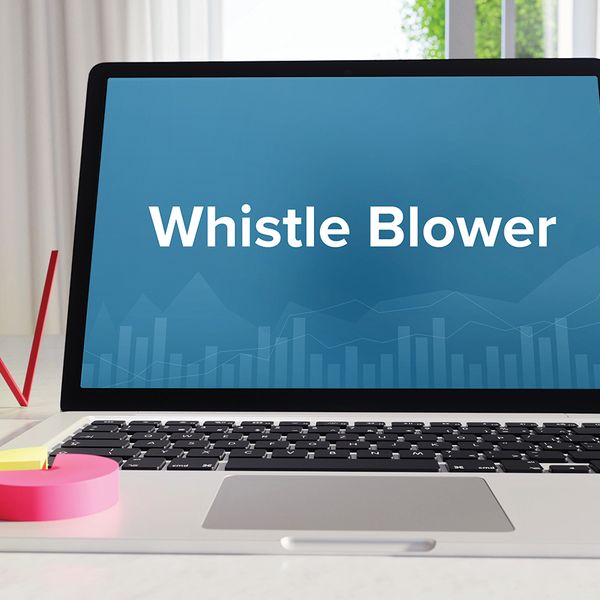Preventing Retaliation: OSHA's Whistleblower Protection Program
Protecting whistleblowers is not only crucial for maintaining a safe and compliant work environment, but it is also a fundamental right that every employee deserves. Safeguarding workers who report violations of federal laws, OSHA's whistleblower protection program ensures that employees can speak up without fear of retaliation.
In recent OSHA news, an employer was ordered to pay $195K to a former employee terminated during the pandemic in April 2020 for reporting concerns about the risk of in-person staff meetings. Let's explore the key aspects of OSHA's whistleblower protection and how employees can exercise their rights and maintain workplace safety.
If employees have knowledge of wrongdoing on the part of their employer, they may take steps to point out the activities and are protected by law from retaliation. This is the basis of whistleblower protection laws, which protect employees, not employers. As such, employers must understand what laws apply, their responsibilities, and employee rights to help avoid retaliation claims and discrimination lawsuits.
Since the passage of the Occupational Safety and Health (OSH) Act in 1970, Congress has expanded OSHA's whistleblower protection authority to protect workers from discrimination under 25 federal statutes.
Whistleblower statutes
A "whistleblower" reports a company or someone in the company or otherwise seeks to stop actions by the company which is believed to be illegal or improper. "Whistle-blowing" activities may include making a report to management or the board of directors or reporting the activity to a government agency.
Since the passage of the Occupational Safety and Health (OSH) Act in 1970, Congress has expanded OSHA's whistleblower protection authority to protect workers from discrimination under 24 additional federal statutes, including the following:
- Affordable Care Act (ACA)
- Anti-Money Laundering Act (AMLA)
- Asbestos Hazard Emergency Response Act (AHERA)
- Clean Air Act (CAA)
- Comprehensive Environmental Response, Compensation and Liability Act (CERCLA)
- Consumer Financial Protection Act of 2010 (CFPA)
- Consumer Product Safety Improvement Act (CPSIA)
- Criminal Antitrust Anti-Retaliation Act (CAARA)
- Energy Reorganization Act (ERA)
- FDA Food Safety Modernization Act (FSMA)
- Federal Railroad Safety Act (FRSA)
- Federal Water Pollution Control Act (FWPCA)
- International Safe Container Act (ISCA)
- Moving Ahead for Progress in the 21st Century Act (MAP-21)
- National Transit Systems Security Act (NTSSA)
- Pipeline Safety Improvement Act (PSIA)
- Safe Drinking Water Act (SDWA)
- Sarbanes-Oxley Act (SOX)
- Seaman's Protection Act (SPA)
- Solid Waste Disposal Act (SWDA)
- Surface Transportation Assistance Act (STAA)
- Taxpayer First Act (TFA)
- Toxic Substances Control Act (TSCA)
- Wendell H. Ford Aviation Investment and Reform Act for the 21st Century (AIR21)
These laws protect employees who report violations of various trucking, airline, nuclear power, pipeline, environmental, rail, maritime, health care, food safety, motor vehicle, workplace, and consumer product safety laws.
Employer responsibility
Under various whistleblower laws, employers are prohibited from retaliating against employees who raise various protected concerns or provide protected information to the employer or to the government. Employees who believe they have been retaliated against for engaging in protected conduct may file a complaint for an investigation by OSHA's Whistleblower Protection Program.
Retaliation complaints have become a large problem for employers. After a charge has been alleged, employers or supervisors sometimes take retaliatory actions against the charging employee, and the employee may bring a retaliation claim. At this point, the employer or supervisor may be responsible for proving that the action was based on legitimate employment concerns and not founded in retaliation. A retaliation charge can be established even if the alleged discrimination was not found. It is not uncommon for an employer to win the underlying discrimination case but still be found guilty of retaliation.
Employers must recognize that employees who file complaints, whether fairly or unfairly, tend to want to fight back against the company out of emotion or anger. To avoid such issues, the employer should meet with those involved, discuss retaliation claims, and ensure a "business as usual" approach.
It may also be useful to meet with the complaining employee to confirm that no inappropriate actions have occurred, resolve any misunderstandings, and establish a line of communication if an issue arises.
Filing a complaint
Workers must report complaints to OSHA within set periods following the alleged retaliation as required by each law. Complaints can be made to OSHA by filing a written complaint or calling the Agency's 1-800-321-OSHA (6742) number or an OSHA regional or area office. Whistleblowers are now also able to file complaints online.
"Workers who report unsafe conditions and wrongdoing have a range of legal protections from retaliation," said a Deputy Assistant Secretary of Labor for OSHA. "The revised online complaint form ensures whistleblowers file their complaints with the appropriate federal agency for prompt action."
The online form prompts the worker to include basic whistleblower complaint information so they can be easily contacted for follow-up. Complaints are automatically routed to the appropriate regional whistleblower investigators. In addition, the complaint form can also be downloaded and submitted to the Agency in hard-copy format by fax, mail, or hand-delivery.
Once a complaint has been filed, OSHA will conduct an in-depth interview with the complainant to determine whether to investigate.
Key to remember
Meet with the complaining employee to confirm that no inappropriate actions have occurred, resolve any misunderstandings, and establish a line of communication if an issue arises.


















































